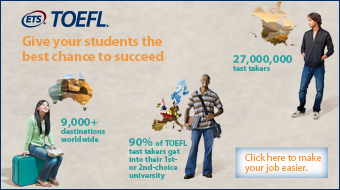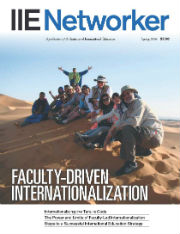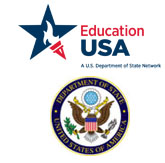 |
March 9, 2016
|
 |
|
News
The Stavros Niarchos Foundation has awarded a $1.25 million grant to the Institute of International Education (IIE) to launch the Greek Diaspora Fellowship Program (GDFP). Over a period of two years, 40 U.S.- and Canadian-based Greek-born academics will receive Fellowships to visit Greek universities to create collaborative, mutually beneficial engagements between students, academics and universities. The GDFP Fellows will develop curricula, conduct research, and teach and mentor graduate students at universities throughout Greece.
"The [...] generous grant demonstrates the Foundation’s commitment to expanding Greece’s human capital and investing in the country’s long-term economic recovery," said Allan Goodman, President and CEO of the Institute of International Education. "IIE has a long history of managing global fellowships, and we look forward to developing talent through the Greek Diaspora Fellowship Program in order to address challenges and harness opportunities across higher education in Greece and the United States."
A recent article in University World News by Clare Banks, Assistant Director for International Partnerships at IIE, cites several main issues facing U.S. higher education institutions as they explore potential opportunities for increasing academic collaboration with Cuba. This article is a timely preface to President Obama’s historic visit to Cuba this week, and provides U.S. colleges and universities with key advice for partnering with counterparts in Cuba. Since 2014, IIE has led the Cuba Higher Education Initiative which offers programs and resources for expanding U.S. – Cuba academic engagement. The initiative has included several national conference calls, a briefing paper, and the International Academic Partnership Program (IAPP) in 2015, which included a delegation of U.S. colleges and universities to Cuba. IIE will be launching the 2016 IAPP Cuba program this spring. For more information, please visit the IAPP website.
In Times Higher Education, IIE President Allan Goodman emphasizes that the case for international academic partnerships transcends the debate over whether the United Kingdom should remain in the European Union. Dr. Goodman penned the op-ed during a recent visit to London to offer a U.S. higher education perspective during in a panel convened by the Universities for Europe campaign. While he acknowledged that staying in the European Union would make it easier for UK universities to continue to participate in the EU funding for scientific research, he maintained that the role of academic leaders should be to advocate for partnerships and collaboration worldwide, on every level, independent of the Brexit vote.
Goodman writes, "What U.S. educators would not want to see is the UK pulling back from international academic engagement. Those who have come out against staying in the EU have said that funding that the British government does not contribute to EU programmes could be used to fund other models of cooperation. If the vote were to go in that direction, it would be essential for university leaders to make sure that this happens, as it might be tempting to redirect those funds into other, more UK-focused initiatives."
Publications
Events & Deadlines
EducationUSA will host accredited U.S. colleges and universities in the EducationUSA Pavilion to promote U.S. higher education at the 28th Annual European Association for International Education (EAIE) Conference in Liverpool, England, September 13-16, 2016. To indicate your interest in registering for the U.S. Pavilion and receive additional updates, please contact Nora Nemeth.
Fulbright
The Institute of International Education is seeking additional host institutions for the 2016-17 Fulbright Foreign Language Teaching Assistant (FLTA) Program that may be interested in hosting a Russian and/or Turkish language FLTA. If the appropriate department on your campus is interested in hosting a Fulbright FLTA, please share with them the links below:
Institutions interested in hosting Russian and/or Turkish are asked to provide the minimum cost share of a tuition and fees waiver for two courses per semester or one per quarter. The grantees’ program expenses (housing, food and daily living expenses) will be covered by the sponsor.
Study Abroad
Deadline: March 15, 2016
The U.S. Department of State Office, of Global Educational Programs, U.S. Study Abroad Branch and Partners for the Americas are pleased to announce its Capacity Building Grants for U.S. Undergraduate Study Abroad. These 17 grants of up to $50,000 will further the mission of the U.S. Study Abroad Branch by increasing the participation and diversity in study abroad through enhancing higher education institutions' capacity to send their students overseas for academic credit, internships, or other experiential learning opportunities.
Through capacity building grant projects, U.S. institutions will receive initial funding to establish or expand study abroad offerings within their institution in a strategic manner. Successful proposals will endeavor to expand access to students underrepresented in study abroad on their respective campus or campuses, including first-generation college/university students, students of diverse race or ethnic backgrounds, students with disabilities, and students in underrepresented disciplines in study abroad.
Partnerships
Record high numbers of international students are coming to the U.S. to attend colleges and universities, but students with disabilities remain underrepresented among them. The time is now to focus on removing access barriers, educating overseas counterparts on accessibility in the U.S., and creating effective recruitment and accommodation strategies. How will you take part in the #Access2USA campaign to increase the participation of international students with disabilities studying in the U.S.A.? Click here for tips and to share the message!
|
||||||||||






